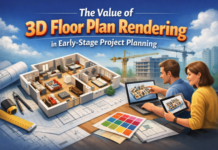Modern plumbing systems are complex networks that ensure a steady flow of clean water throughout your home and efficiently remove wastewater.
Whether you’re considering a brand new installation, replacing an outdated water heater, or addressing a specific plumbing issue, understanding the process and the professionals involved can empower you to make informed decisions.
This guide explores some key considerations for homeowners navigating plumbing system upgrades and maintenance.
What You Need to Know About Upgrading Your Plumbing System
1. Define Your Needs and Scope
The first step in any plumbing project is careful planning. Clearly define your needs and the desired scope of the work. Are you looking for a complete heating installation, or do you simply need a replacement for your existing unit?
Perhaps you’re considering a bathroom remodel that requires rerouting pipes or installing new fixtures. A clear understanding of the project’s goals helps you communicate effectively with water heater installation professionals or plumbers and obtain accurate estimates.
Researching different options and materials beforehand allows you to make informed decisions that fit your budget and preferences.
2. Hire Licensed Plumbers for Quality Work
Plumbing work, especially projects involving water heater installation or complex upgrades, should always be entrusted to licensed plumbers. Licensed plumbers possess the necessary training, experience, and permits to ensure the work meets all safety and building codes.
When searching for a plumber, look for professionals with a good reputation and experience in projects similar to yours. Ask for references and check online reviews to gauge their customer service and quality of work.
Don’t hesitate to get quotes from several plumbers to compare pricing and ensure you’re receiving a fair rate.
3. Understand the Safety and Compliance
Depending on the nature of the plumbing project, you might need to obtain permits from your local building department. Licensed plumbers are familiar with permitting requirements and can guide you through the process.
Obtaining the necessary permits ensures your project meets all safety standards and building codes. Skipping this step can lead to potential issues down the line, including fines or delays due to non-compliance.
4. Select the Right Unit for Your Needs
If your water heater is nearing the end of its lifespan or no longer meets your hot water demands, a new heater might be necessary. When selecting a new water heater, consider factors like fuel source (gas or electric), capacity (based on your household’s hot water needs), and energy efficiency.
A qualified HVAC professional can advise you on the best option for your specific situation and ensure the unit is properly installed and vented according to safety regulations.
5. Maintain Your Plumbing System
Regular maintenance is crucial for ensuring the smooth operation and longevity of your plumbing system. Schedule septic tank pumping every few years to prevent backups and clogs. Inspect your pipes and fixtures for leaks and address any minor issues promptly to avoid more extensive damage down the line.
Investing in preventative maintenance can save you money in the long run by preventing costly repairs and replacements.
Final Thoughts
By following these tips and understanding the roles of different professionals, you can confidently navigate plumbing system upgrades or maintenance needs in your home. Remember, careful planning, hiring qualified plumbers, and prioritizing preventative maintenance are key to a healthy and functional plumbing system for years to come.




